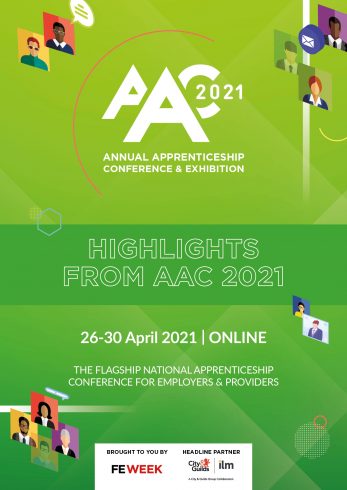The seventh Annual Apprenticeship Conference (AAC) was like none before – literally – as we swapped the two-day in-person event at Birmingham’s ICC for a five-day virtual conference due to Covid-19.
Despite putting a stop to face-to-face events, the pandemic did not falter the occasion. Across the week, the conference had over 1,500 apprenticeship employers and providers in attendance staged over 130 sessions including workshops, plenaries and demos featuring over 100 speakers. In total, 75 hours of content was broadcast.
The impact of Covid-19, unsurprisingly, featured heavily among the discussions that involved all the usual industry bigwigs.
Starts have expectedly taken a hit since the start of the pandemic: they totalled 393,400 in 2018/19 but dropped by 18 per cent to 322,600 in 2019/20, with younger apprentices and chief UK policy director Matthew Fell calling for a new “broader skills and training levy” to replace the apprenticeship levy, a policy which shadow education secretary Kate Green also believes is in need of major reform (page 10).
Jennifer Coupland, the chief executive of the Institute for Apprenticeships and Technical Education, also took to the stage and tackled the question of whether England has too many apprenticeship standards as the number hits the 600 mark – an issue later tackled by a panel of sector experts (page 7).
Chief Ofsted inspector Amanda Spielman used her speech to express concerns about the quality of apprenticeship training (page 8), which is a problem the inspectorate has commonly raised since the 2017 reforms.
Download our free supplement covering the conference here.
















Your thoughts